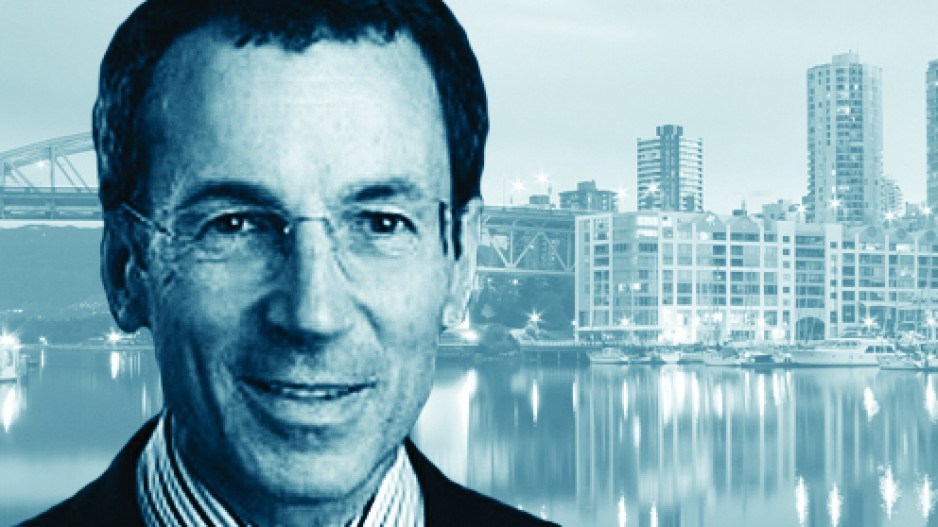When George Harrison made errors in a recorded performance, he liked to tell fellow musicians not to worry: “We’ll bury ’em in the mix.” That expression morphed into the name Traveling Wilburys. This seems an apt metaphor for understanding the BC Liberals’ error in ignoring public concerns about electoral finance reform: “We’ll bury that noise in the mix of good news about the B.C. economy,” I can imagine them saying.
That’s a sweet melody these days. B.C. just scored the lowest unemployment rates in the country, a first since those stats were started in 1976.
Yet the biggest driver of that success, the Lower Mainland construction industry, has been unable to stop the even bigger rise in real estate prices relative to local incomes. And that gap has pushed housing, poverty and homelessness past the economy as B.C. residents’ No. 1 concern in the latest Business in Vancouver-Insights West poll.
This loops back to who’s paying the piper. In tune with chief BC Liberal fundraiser Bob Rennie’s industry’s many happy returns from surging housing prices, Finance Minister Mike de Jong has shrugged off housing unaffordability as being an issue in “a few neighbourhoods.” That aligns with the booming real estate industry’s unsupported and unexamined contention that building more housing will solve our housing affordability problem. There were more housing starts in Metro Vancouver in April than there have been since 1972, but that hasn’t stopped prices from rising to record levels. Something is off-key here, and the voters know it.
This isn’t just about protecting financial backers in the real estate industry. It’s about remembering what happened to federal Tories when voters felt they’d been around too long, had become too cozy with their friends and were too arrogant to notice.
The latest auditor general report on the BC Liberals’ woefully inadequate mine monitoring and inspection builds on Gordon Campbell’s decision to gut enforcement of environmental laws decades ago. With fewer conservation officers in the field today than 20 years ago and twice as many calls about poachers and polluters, convictions for environmental offences have plunged from 500-plus a year in the 1990s to around 85 a year today, according to Simon Fraser University and University of British Columbia environmental law professor David Boyd’s analysis of B.C. government data.
Compare the lack of charges against major BC Liberal donor Imperial Metals, whose “poor practices” resulted in the Mount Polley disaster, with what happens in the U.S. There, Boyd points out, “prosecutions initiated by the Environmental Protection Agency every year send dozens of people to jail, result in hundreds of millions of dollars in fines and force corporations to invest billions to clean up their messes.”
“British Columbia has the distinction of being the largest Canadian province with no restriction on who finances our political campaigns,” Independent MLA Vicki Huntington told the Vancouver Sun’s Vaughn Palmer as she introduced a doomed Election Finance Amendment Act last month. “B.C.’s campaign finance rules remain the weakest in the country. Parties and candidates can solicit any amount of money from any organization or any person anywhere in the world.”
Not to worry, replied the premier, we aren’t breaking any rules. Nor is her government in any hurry to implement limits on election spending recommended by its own Local Government Elections Task Force, overwhelmingly supported by public opinion and unanimously endorsed by Vancouver city council. Maybe in 2017.
This makes her tone-deaf to what Huntington describes as “a public conviction that money talks, that democracy is bankrolled by special interests.”
The U.S. election and the recent Canadian federal election remind us that when people get really angry at the grip of political donors on the political process, they get out their pitchforks.
Blatant conflicts of interest aren’t always successfully buried in the mix.
Peter Ladner ([email protected]) is a co-founder of Business in Vancouver. He is a former Vancouver city councillor and former fellow at the SFU Centre for Dialogue. He is the author of The Urban Food Revolution.




